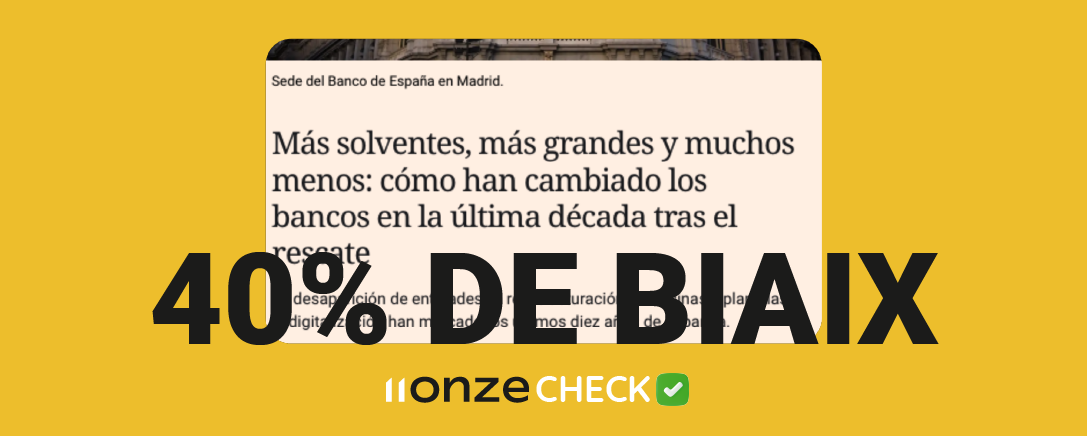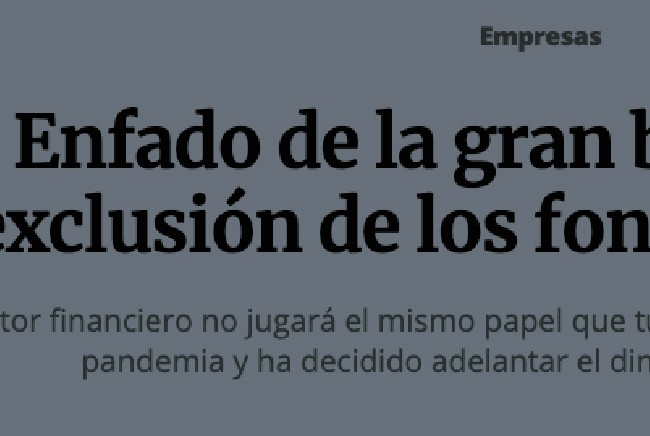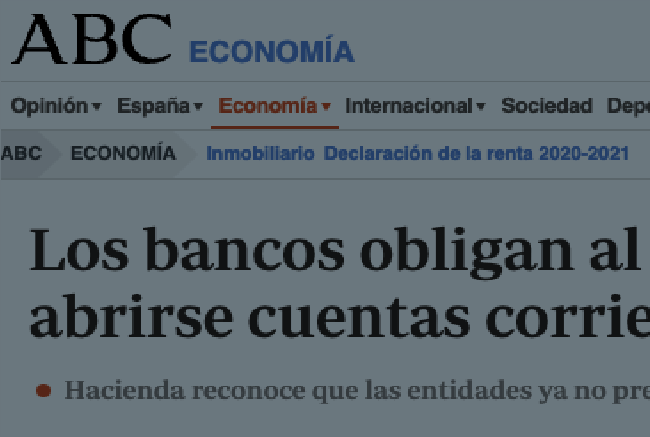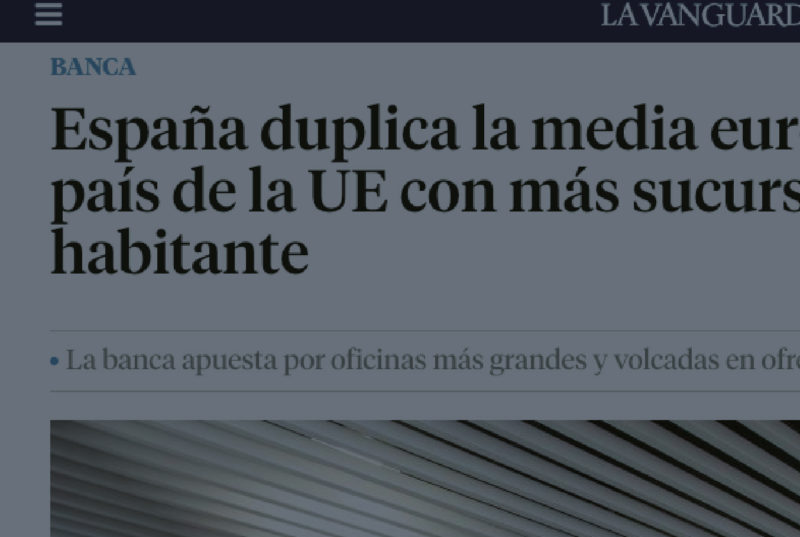

11Onze Check: The bailed-out banks that save us
A decade after the Spanish bank bailout, hopes of recovering the billions that were injected into the banks are fading. Only around 6 billion of the 62.754 billion injected by the Spanish state into a financial sector that has been drastically transformed has been recovered. The article published by “El Español” takes stock of the changes that have taken place in the banking sector, and from 11Onze Check we analyse the news with the Bias Method.
The serious liquidity problems and the insolvency of the banks made the structuring of the Spanish banking sector inevitable, but by then Spain was already paying unsustainable risk premiums. Thus, on 19 June 2012, the Spanish government asked, or was forced to ask by its European partners, for a credit line from the European Union (EU) of 100 billion euros.
Ultimately, the money used by a tailor-made bailout for the banks was 41.333 billion euros, preventing the collapse of the Spanish financial system. So far, the state, or rather the Spanish taxpayer, has repaid 17.612 billion euros to the Stability Mechanism (ESM), with the rest of the requested loan and interest due to being repaid by 2025.
Public money at a loss
However, despite obtaining record profits, Spanish banks have been more than reluctant to return the money from a public bailout that finally amounted to 62.754 billion euros, of which only around 6 billion euros have been recovered through redemptions and sales of institutions. Money that belongs to the public, who have paid their taxes.
The social cost of this bailout to a banking system that continues to evict thousands of people a year, that does not forgive a delay in the payment of a monthly mortgage, that has closed thousands of cashpoints and bank branches encouraging the financial exclusion of a large part of the population, is just one of the consequences of a bailout that was tailor-made for the banks, and at the expense of the population that has ended up paying the price.
It is for these reasons that it is surprising that the article published by “El Español” tells us that everything possible has been done to avoid the loss of public money, that the social function of the banks has not been lost, and that it presents the banks spearheading the solution to the economic crisis we are suffering, especially when Spain will have to be rescued again by Europe. At 11Onze Check we take all these factors into account and conclude that this article has a 40% bias.
INTENT
We can deduce that there is an intention to establish the narrative according to which private banks have to participate in public funds but can be exempted when these same public funds are not returned, given their indispensability for the economic stability of the country. Comments such as “the banks, this time, have not been the problem, but the solution”, ignore the fact that precisely with the aid for the sanitary crisis, the banks have not even been necessary to act as intermediaries in the funds that have come from Europe.
CONTEXT
Although the information is contextualised with a preview of the bank bailout and the money still to be returned, it is hard to understand how the banks can be presented as the solution to our financial problems when there are more than 50,000 million that they have not returned and that will probably never return to the public coffers.
FOG
The article is foggy because some information presented is not supported by any evidence. For example, when it says that the bank’s social work has been maintained, without taking into account that investment in social work has fallen by 60% in recent years and the number of beneficiaries by 75%. In other words, the social and cultural work of the former savings banks has not been rescued.
VOCATION OF SERVICE
It normalises a situation that is clearly contrary to the public interest as a fait accompli that we have to accept and move on from. There is no mention of alternative scenarios existing in other countries around us, where banks have indeed returned a large part of the bailout money. Nor is there any mention of how a public bank could be an alternative to the current system, which has shown itself to be totally inadequate to look after the financial interests of the population, especially given the ethical incongruity of financial institutions with record profits not returning public money that has been used to bail them out.
If you want to discover the best option to protect your savings, enter Preciosos 11Onze. We will help you buy at the best price the safe-haven asset par excellence: physical gold.
Leave a Reply
You must be logged in to post a comment.






El poder que te el govern de torn com titella ,i fa allò que calgui per enriquir-se més i més
És el mateix de sempre i que es va repetint governi qui governi… Moltes gràcies pel teu comentari, Alícia!!!
Venint del diari que ve, el contingut és normal. M’agradaria veure anàlisi a notícies publicades a diaris editats a Catalunya.
També tens raó, però molt probablement els diaris d’aquí ben poca cosa diran, o fins i tot potser no diran res de res… Moltes gràcies pel teu comentari, Joan!!!
Bon article i bo l’anàlisi amb el Bisix
Moltes gràcies per les teves paraules, Francesc. Agrair-te, també, el comentari!!!
👍
La banca tradicional, una vergonya pel país… Moltes gràcies, Manel!!!
Més clar, l’aigua.
Gràcies.
Gràcies a tu per apreciar-ho, Mercè!